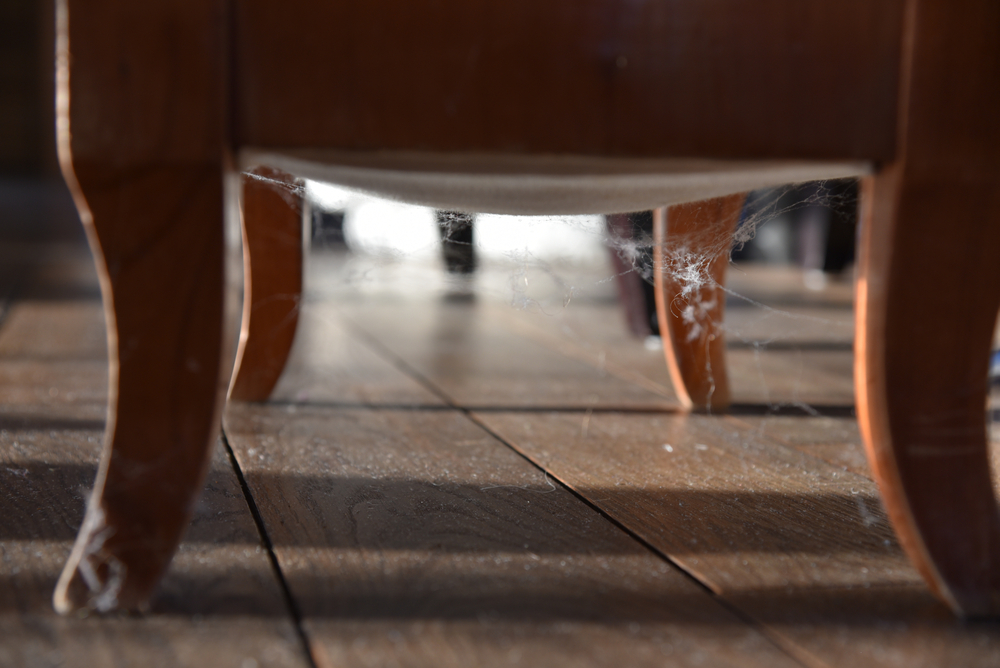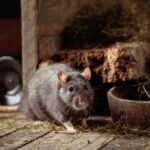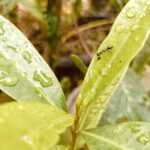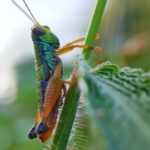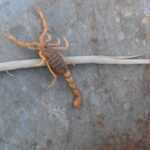Why Are There So Many Spiders In My House? Tips to Get Rid of Them
Why are there so many spiders in my house? Spiders come in for food, shelter and warmth. This article will explain the reasons and give you tips to reduce the numbers.
- Sealing entry points and hiding spots is key to preventing spider infestations.
- Regular cleaning and decluttering can reduce spider numbers by removing food sources and shelter.
- Knowing the seasonal patterns and controlling the climate can help minimize spider activity in your home.
Entry Points
Spiders can get into your home through various entry points. These include gaps and cracks in walls, windows, doors and even utility lines. Poorly sealed windows and doors are common entry points for these arachnids. Cracks around foundation walls are also potential gateways for spiders looking for shelter. To prevent spiders from getting in, you need to seal or block all these entry points. Regular maintenance like fixing broken window screens and sealing gaps can reduce the chances of spiders getting in.
Also, check the perimeter of your home for vulnerable spots. Spaces around vents and utility lines can be overlooked but are common entry points for spiders. Inspect and seal these areas thoroughly to minimize spider access.
Knowing where spiders hide and their entry points is key to managing the house spider population.
Where Spiders Hide
Spiders like to hide in dark, quiet areas that provide security and proximity to food sources. Attics and basements being less frequented and often cluttered are favorite spots for spiders. These areas offer the perfect combination of dark, undisturbed spaces and potential prey, making them ideal hiding spots for various spider species.
Cluttered areas including cardboard boxes and storage rooms are also prime real estate for spiders. The more cluttered an area, the more hiding spots it has for spiders, making it easier for them to set up their webs and nests. Spiders also take refuge under furniture and in hidden places like wall voids. These spots provide the seclusion and safety that spiders need, allowing them to go unnoticed while they hunt for food.Reducing clutter and cleaning common hiding spots can make your home less appealing to spiders. Removing spider webs and hiding places will discourage spiders from settling in. Keeping your home tidy and organized can reduce the spider population and make your living space less attractive.
Why Spiders Are In Your Home
Spiders are present when there is an abundance of insects in the environment. House spiders feed on common household insects like flies, mosquitoes and roaches. Moist environments attract spiders because of the presence of prey and favorable conditions for their survival. Higher humidity and warmth during summer months means more spider hunting and breeding.
Garden vegetation provides a natural habitat for spiders and often leads them to enter homes. Cluttered areas provide hiding spots for spiders making homes more attractive to them. A clean home can reduce the attractiveness to spiders by removing hiding spots and food sources.
Knowing what attracts spiders allows you to take proactive steps to make your home less appealing to them.
Other Pests
Spiders are carnivorous and rely on other pests for food, so homes with insect populations are more appealing. An overwhelming presence of spiders means there is a significant insect population in the home. By controlling other pest populations you can naturally reduce the spider population in your home.
Spiders help eliminate other pests in the home, it’s a natural control mechanism. But if the insect population becomes too high it can attract more spiders. So effective pest control should focus not only on eliminating spiders but also on reducing other pests and insects.
Addressing the root cause of the infestation creates a less hospitable environment for spiders.
Seasonal Changes and Spider Activity
Spider activity changes with the seasons especially in fall. Spider mating season usually starts late summer and extends into early fall. Many spider species become more visible during this time as their mating behavior peaks, that’s why you see more spiders in your home. As outdoor temperatures drop in fall, many spiders seek refuge indoors to escape the cold.
Homeowners notice more spider activity as days get shorter and temperatures drop, creating conditions for spider visibility. Knowing these seasonal patterns helps you prepare and manage spider activity at home. Taking preventive measures during peak seasons reduces the chances of a spider infestation.Managing spider activity during peak seasons means reducing clutter, sealing entry points and keeping your home clean. Regularly inspect and clean hiding spots can keep your home spider free. Being proactive minimizes spider activity and prevents infestations before they become a problem.
How Climate Control Affects Spider Populations
Climate controlled homes provide ideal living conditions for spiders, steady temperatures and humidity levels. These homes provide a stable environment for spider survival and reproduction. Controlling humidity can keep spiders at bay by creating less favorable living conditions for them.
Keeping your home climate balanced deters spiders from settling in. This means using dehumidifiers to control humidity and ensuring your home is well ventilated. Creating an environment less conducive to spider survival reduces the chances of infestation.
Preventing Spider Infestations
Preventing spider infestations involves a combination of strategies to make your home less appealing to spiders. Sealing gaps around doors, windows and vents can significantly reduce the chances of spiders entering your home. Eliminating entry points creates a barrier that prevents spiders from entering.
Cluttered areas provide safety and access to prey for spiders; decluttering your home can deter them. Regularly cleaning under furniture and frequent vacuuming can also help reduce spider presence by removing webs and insects. Regulating indoor humidity and eliminating moisture can create less favorable conditions for spiders.
Also maintaining a clean and organized home can discourage spiders from settling in. Removing spider webs and hiding places makes your home less attractive to spiders. Implementing these preventive measures can keep your home spider free and reduce the chances of a spider infestation.
Existing Spider Infestations
If you see spiders in your home, you need to contact a pest control service. Professional pest control services provide inspections, interior treatments, cobweb removals and exterior barrier treatments for spider problems. They can tailor treatment plans based on the spider species present in your home.
Applying perimeter insecticides can create a barrier that deters spiders from approaching your home. Setting sticky traps in areas with spider activity can help monitor and control the spider population.
Brown recluse infestations require an integrated management approach including the use of sticky traps and sealing hiding places. These steps can manage and eliminate existing spider infestations.
Natural Predators of Spiders
Natural predators play a big role in managing spider populations by controlling their numbers through predation.
Spiders themselves are natural pest control by preying on many spiders in my house and other insects that may infest homes including the house spider, helping to manage unwanted pests.
Spiders have natural predators. These are:
- fish
- toads
- lizards
- birds
- hawks
- spider wasps
- centipedes
- other spiders
Introducing natural predators in your environment can help control and reduce spider populations. Encouraging these predators to thrive in your surroundings creates a balance that keeps spider numbers in check. This can be a complementary strategy to other pest control measures to keep your home spider free.
Dangerous Spider Species
Knowing the dangerous spider species is important for home safety. Brown recluse spiders can be identified by their violin shaped marking and six eyes in three pairs. Most bites from brown recluse spiders occur when they are trapped against the skin and can cause uncommon yet serious complications.
Black widow spiders have an hourglass marking on the underside of their abdomen usually in red or orange. Black widow bites can cause sharp pain and systemic symptoms but fatalities from these bites are extremely rare.
Knowing the dangerous spider species allows you to take necessary measures to avoid and handle them.
Regular Pest Control
Can significantly reduce spider populations in homes and prevent infestations. Regular treatments can identify and eliminate other pests that attract spiders making the environment less hospitable for them. Regular inspections by pest control professionals can identify potential entry points and breeding grounds for spiders and also prevent infestations from other pests like bed bugs.
Professional pest control services often include comprehensive inspections that can find hidden spider habitats in a home. Keeping a clean environment and sealing gaps is recommended by a pest control professional to prevent spider infestations.
Using preventative pest control can lower the chances of spiders entering a home by sealing entry points and removing clutter.
Spider infestations can be managed and prevented by knowing their entry points, hiding spots and what attracts them to homes. Regular pest control and a clean and organized living space can reduce the chances of a spider infestation. Contact Las Vegas Pest Control for professional help in keeping your home spider free and comfortable. Take action today to protect your home from these unwanted guests.
Frequently Asked Questions
Why are there so many spiders in my house?
Spiders in your house are usually due to abundance of insects, moisture and cluttered conditions that provide hiding spots. Addressing these factors can reduce spider population.
How can I prevent spiders from entering my home?
To prevent spiders from entering your home, seal gaps around doors, windows and vents, reduce clutter and keep a clean environment. This will make your home less attractive to spiders.
What should I do if I find a spider infestation in my home?
If you find a spider infestation in your home, contact a pest control professional for effective management and tailored treatment. This will ensure a thorough inspection and solution to the problem.
Are all spiders dangerous?
Not all spiders are dangerous; most are harmless. Exercise caution around certain species like brown recluse and black widow which are harmful.
How often should I have pest control treatments to prevent spider infestations?
To prevent spider infestations, it is recommended to schedule pest control treatments along with regular home maintenance. Consult a pest control professional to create a personalized management plan.
